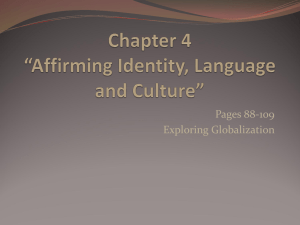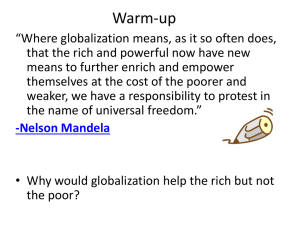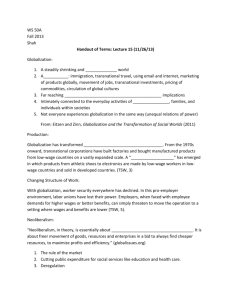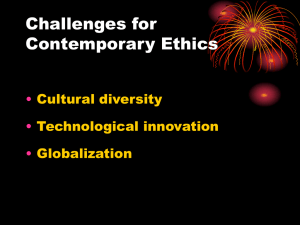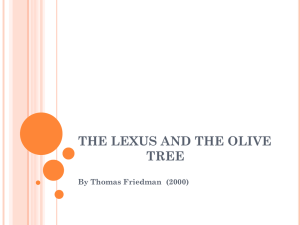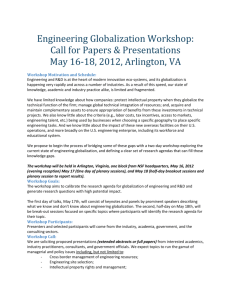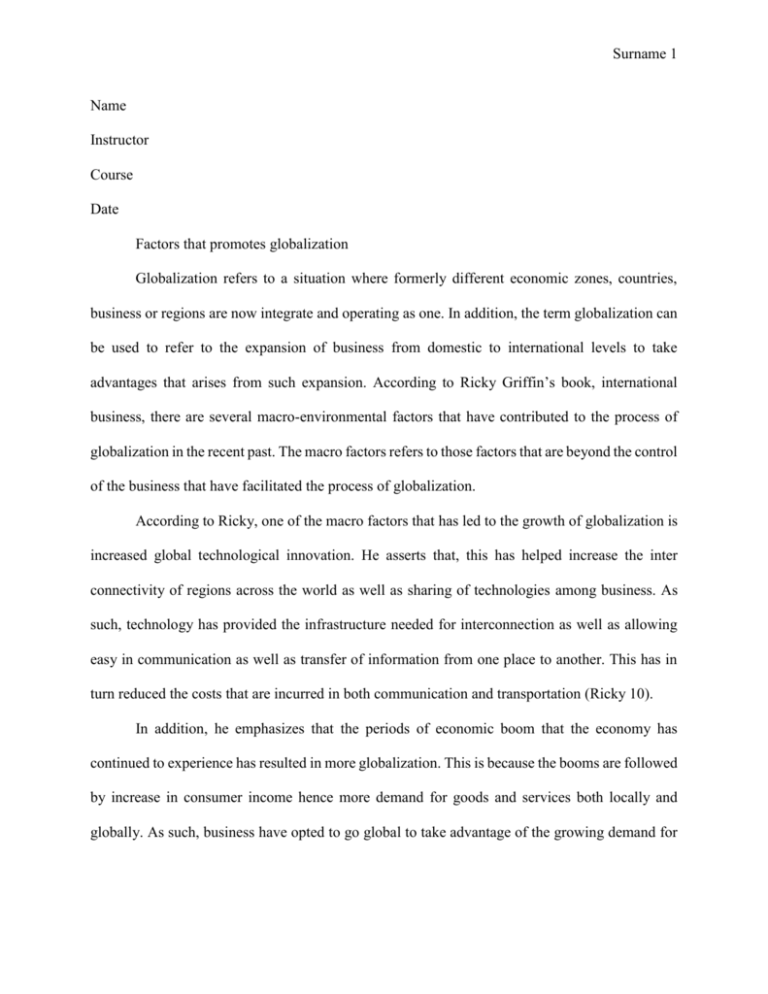
Surname 1
Name
Instructor
Course
Date
Factors that promotes globalization
Globalization refers to a situation where formerly different economic zones, countries,
business or regions are now integrate and operating as one. In addition, the term globalization can
be used to refer to the expansion of business from domestic to international levels to take
advantages that arises from such expansion. According to Ricky Griffin’s book, international
business, there are several macro-environmental factors that have contributed to the process of
globalization in the recent past. The macro factors refers to those factors that are beyond the control
of the business that have facilitated the process of globalization.
According to Ricky, one of the macro factors that has led to the growth of globalization is
increased global technological innovation. He asserts that, this has helped increase the inter
connectivity of regions across the world as well as sharing of technologies among business. As
such, technology has provided the infrastructure needed for interconnection as well as allowing
easy in communication as well as transfer of information from one place to another. This has in
turn reduced the costs that are incurred in both communication and transportation (Ricky 10).
In addition, he emphasizes that the periods of economic boom that the economy has
continued to experience has resulted in more globalization. This is because the booms are followed
by increase in consumer income hence more demand for goods and services both locally and
globally. As such, business have opted to go global to take advantage of the growing demand for
2
goods and services that continue to be experienced. Business have therefore expand their
operations to global standards by adoption of the globalization process (Ricky 12).
Another factor that has promoted globalization according to Ricky Griffin is the increase
in population across the world. Population is the key determinant of the level of demand that the
economy experiences. In this light, as the population in the world has increased due to improved
maternal health care, the demand for goods and services has also increases. Business have in turn
opted to go global and take advantage of the benefits that are associated with the growing
population (Ricky 15).
Moreover, Ricky asserts that government policies by some countries have also led to more
business going global. In this, he argues that the governments of most developing countries have
continued to encourage foreign investors to their countries in order to induce development. In
doing this, the governments of such countries have in turn promoted the process of globalization.
Furthermore, he argues that the government of such countries have formulated favorable policies
that encourage globalization. This has been achieved through elimination of trade barriers that are
place on business that are coming to do businesses in foreign land (Ricky 20).
Furthermore, he argues that, the increased formation of trade alliances and bodies has
promoted the process of globalization. This is because the trade blocks that most countries form
eliminate any barriers that exist between countries in the form of trade and mobility of factors of
products. In this light, Ricky argues that the business find it easy to expand to new countries due
to mobility of factors and elimination of trade barriers (Ricky 16).
One of the forces that can have strong effects of globalization in Palestine’s is
liberalization. Trade restriction is one of the issues that Palestine has faced over the year. This has
mainly been championed for by the government in an attempt to protect the local industries.
3
However, over the years the government has eliminated this restrictions thus allowing the
importation of goods from other countries. In addition, companies from abroad can easily sell their
commodities to Palestine due to flexibility of restrictions that initially did not allow for
globalization (Lim 34).
The availability of unused raw materials in Palestine can also contribute to the process of
globalization. This is because such raw materials attract multinational corporations hence allowing
for globalization. In turn, this multinational companies will produce goods for both local and
international markets hence promotion the process of globalization. However, the availability of
the needed raw materials is key as it also allows the production of goods and services for both
local and international market (Newell 47).
In addition, the development of technology in Palestine will enable the country to undergo
the globalization process. This is because there exist technological gaps in the country that have
continued to limit the process of globalization. In this light, the country ought to adopt technologies
that are being developed in order to attempt to develop the globalization process. Technologies
will allow for interconnectivity of business in the country as well as those from the global platform.
It will therefore ease transactions in the country and hence promoting the global process
(Kaplinsky 67).
Moreover, the creation of a favorable political atmosphere will help in increasing the
country as a global village. This is because most companies fear to invest in the region due to
political upheavals. As such, if the country would succeed in developing a favorable political
environment, it would experience more globalization than it is. This peace and security will attract
foreign traders as well as investors. This notwithstanding, other companies will also feel they are
4
guaranteed security for their goods and services hence take part in the globalization process
(Newell 32).
5
Work cited
Lim, Alwyn, and Kiyoteru Tsutsui. "Globalization and commitment in corporate social
responsibility cross-national analyses of institutional and political-economy effects." American
Sociological Review 77.1 (2012): 69-98.
Newell, Peter. Globalization and the environment: Capitalism, ecology and power. John
Wiley & Sons, 2013.
Kaplinsky, Raphael. Globalization, poverty and inequality: Between a rock and a hard
place. John Wiley & Sons, 2013.
Ricky W. Griffin and Michael W. Pustay (2015). International Business, 8th edition with
MyLab. Pearson Prentice Hall ( CHAPTER ONE from this book)




